Daniel Arasse.
Stories about Paintings
A collection of observations and opinions about painting, originally presented in a series of radio broadcasts by the French art historian.
Stories about Paintings (Histoires de peintures) might be described as a self-portrait made from 25 paintings. In 2003, after a fatal diagnosis of motor neurone disease, Daniel Arasse gave a series of talks on the French radio station, France Culture, in which he summed up in plain language his approach to and thoughts about art. For Arasse, art history is more than a scientific discipline—it is about wonderment and emotion. Standing before any work of art, from the Mona Lisa to a piece by a little-known genre painter, Arasse is in the position of an unbiased but extremely attentive viewer, capable of entering into dialogue with the artist and drawing conclusions about the author’s world picture from particular details of what he sees. In these lectures Arasse engaged in a combat with his own approaching death and with the very idea of a limit to time.
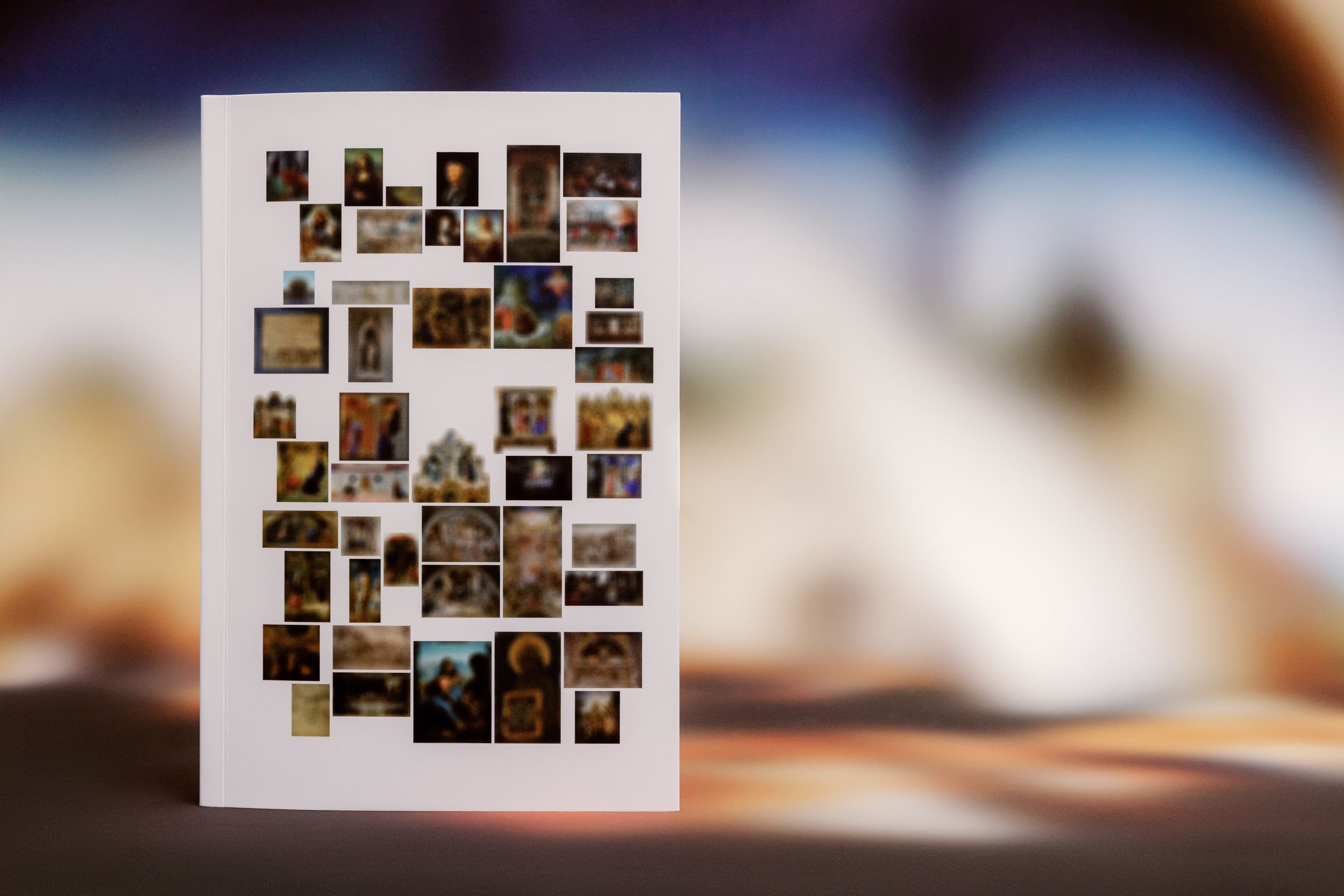
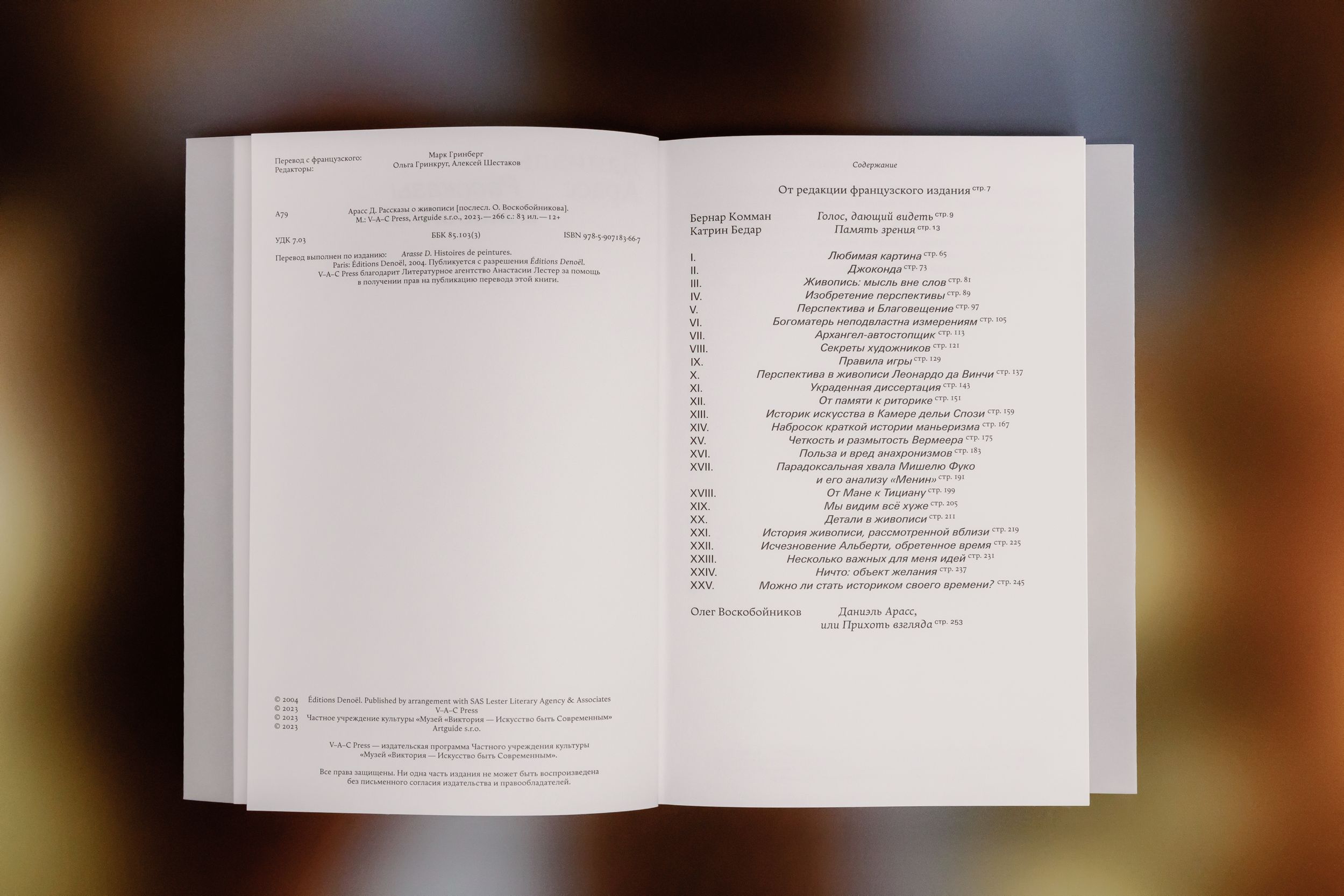
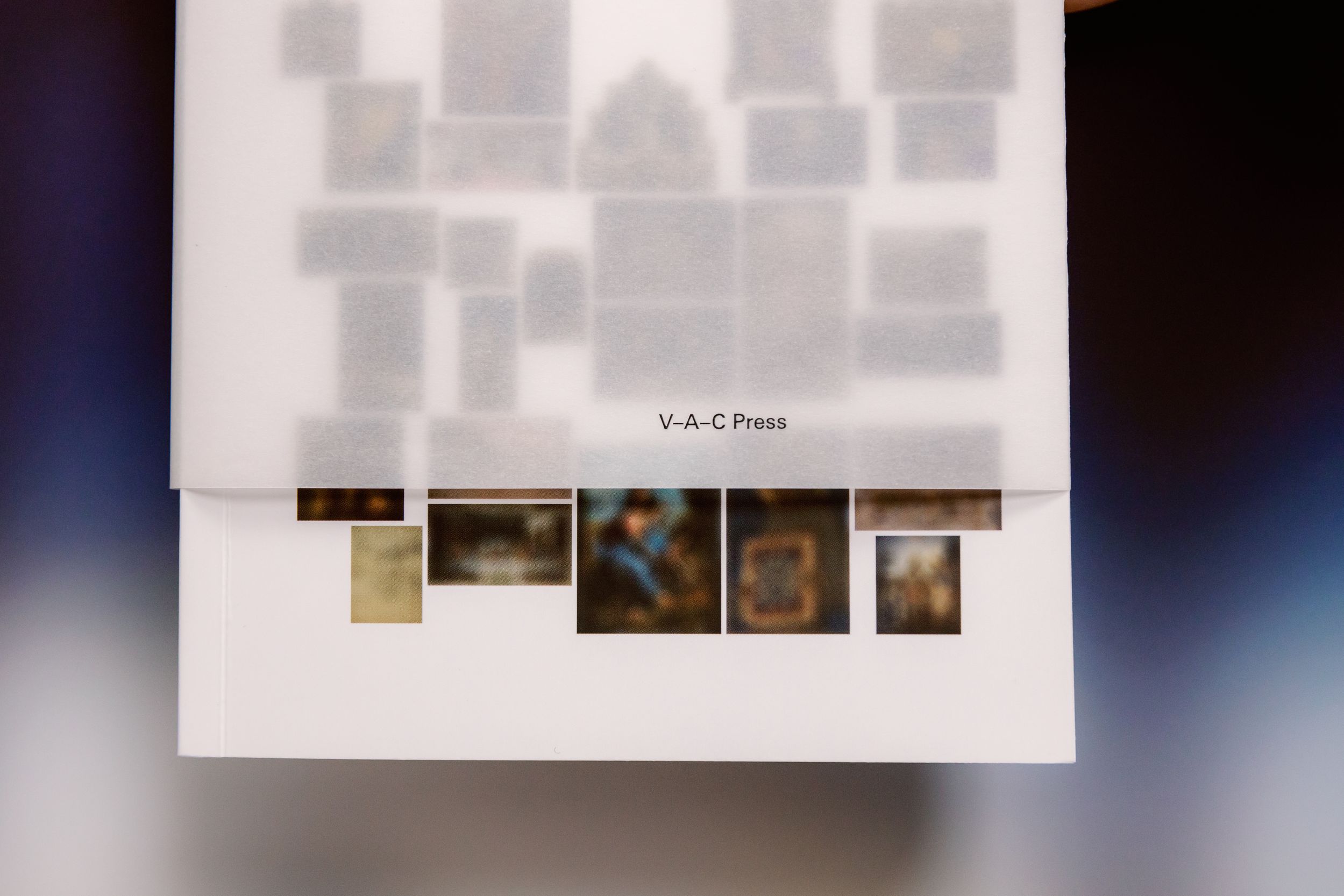
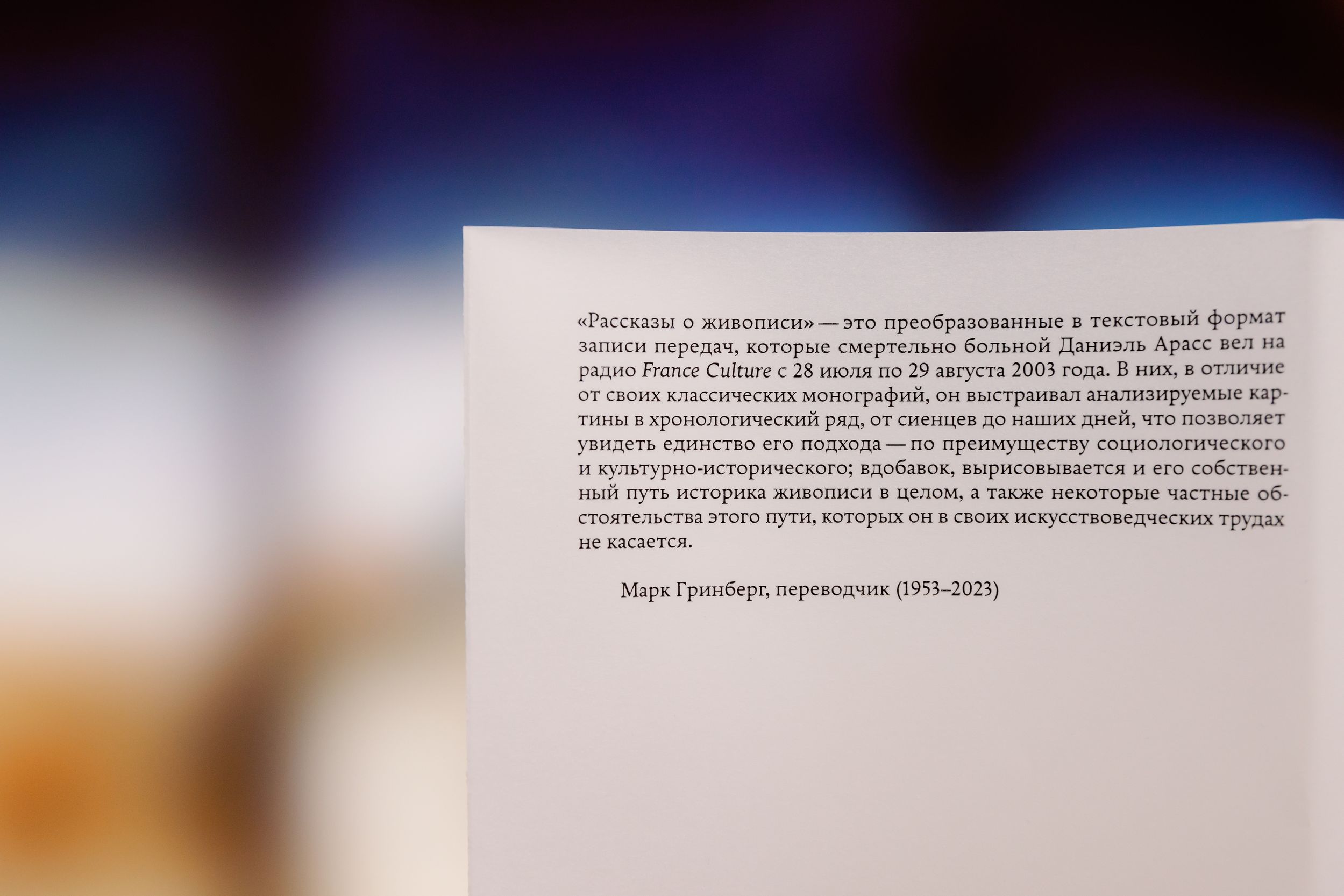
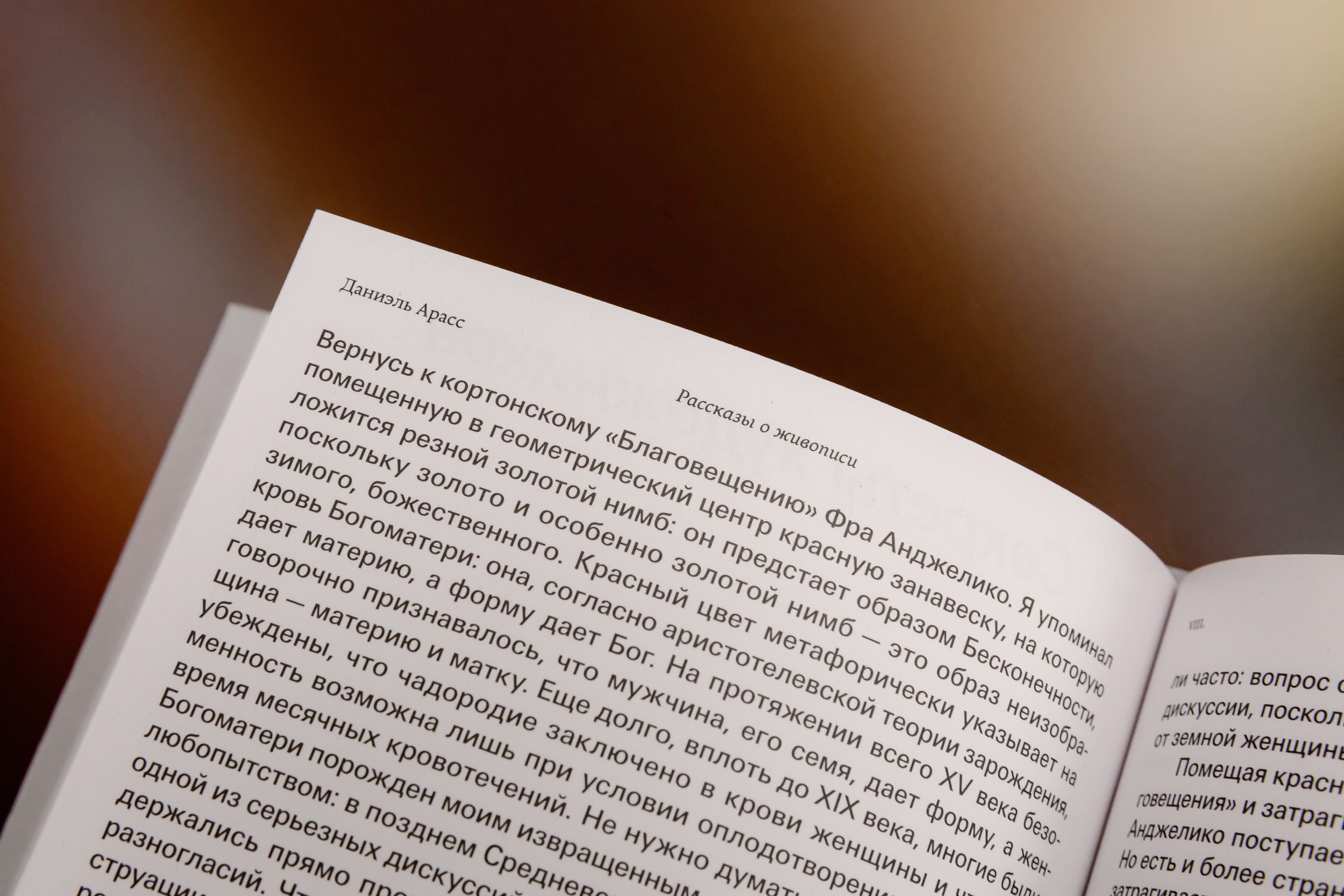

All photos: Daria Izbash
Daniel Arasse (1944–2003) was a French art historian and a leading international expert on the Italian Renaissance.
Painting is an art that fascinates and yet we can’t explain why it touches us. This is the question to which I am still seeking the answer: how does a painting, a fresco, or a place where they exist touch me? Why did tears well up when I looked at Matisse’s sketch of La Danse, which is absurd because you are not supposed to cry when you look at a painting. To cry at the opera is traditional and commonplace, but that is not how emotion is usually expressed before a painting—it is a different kind of emotion.
Arasse is familiar to readers in Russia from translations into Russian of his books On n’y voit rien (translated in English as Take a Closer Look) and Le détail. Pour une histoire rapprochée de la peinture (Detail. Towards a Close-up History of Painting). In the first of two introductory texts to Stories about Paintings, the Swiss writer Bernard Comment explains the background to the radio talks, which the book transcribes. The second introduction is by Arasse’s widow, the Canadian-French researcher Catherine Bédard. The medievalist Oleg Voskoboynikov, a one-time student of Arasse, has written an epilogue to the Russian edition of the book.
The Russian-language translation of these lectures reproduces the original radio talks more accurately than the French publication thanks to the work of Mark Greenberg, the Russian translator. In two years of work Greenberg not only translated the book, but also restored the texts to the author’s version. The publication is dedicated to the memory of Mark Greenberg, who died in 2023.
Translator
Mark Grinberg
Editors
Olga Grinkrug
Alexey Shestakov
Design and layout
Lyosha Kritsouk